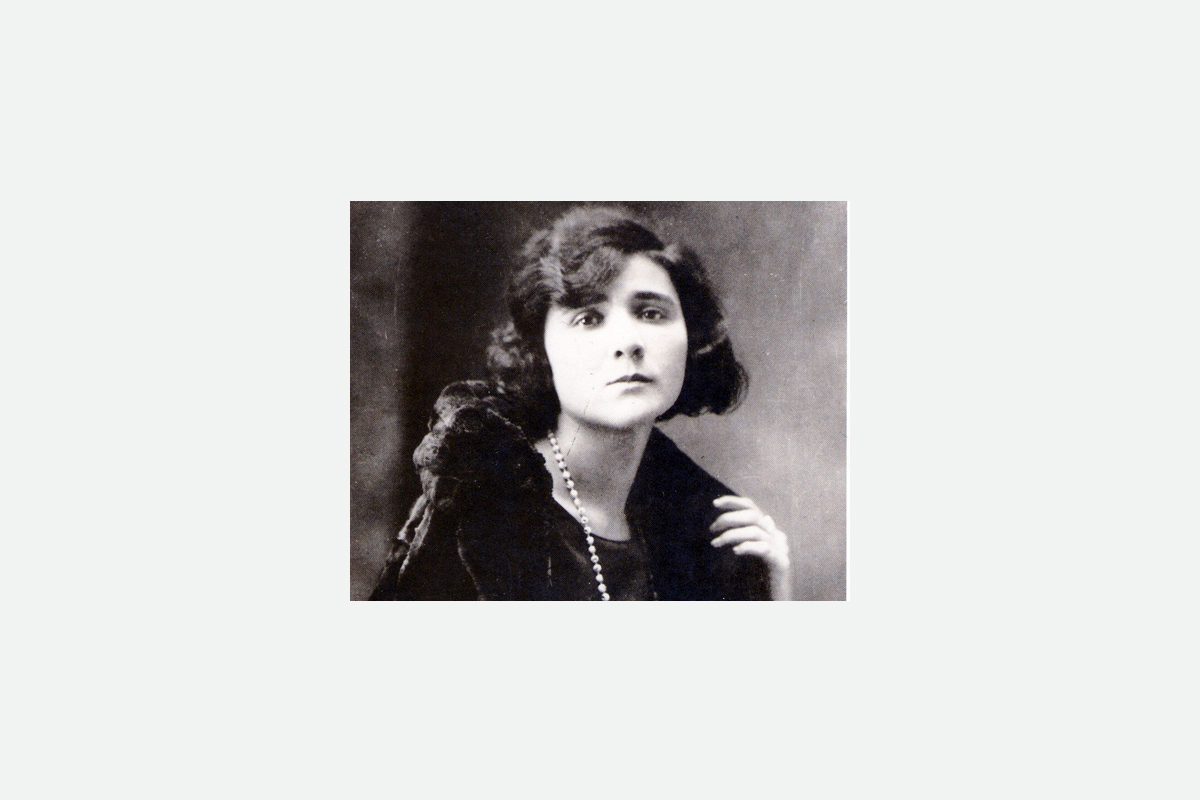Poetry by Florbela Espanca: The Religious and the Pagan
The work of the Portuguese poet Florbela Espanca mirrors every corner of her life. Her poetry—considered very feminine at the time—was not acclaimed. She began writing poems and prose as a child, and since her first poem, entitled “Life and Death”, her melancholic nature—which would later become one of the frequent elements in Espanca’s literary work—is evident. However, her avant-garde mind and soul were frowned upon by a conservative society. Espanca lived in a turbulent period known as the First Republic (1910-1926), which was a time of great religious influence and conflict. Espanca’s poetry often expressed paganist views, causing many to be prejudiced against her.
Despite addressing a Catholic God in some poems, Espanca questions the existence of this superior entity and reveals an adoration for nature. Thus, her poetic voice oscillates between the religious and the pagan. Espanca’s poetry emphasizes the feminine perspective, seeking freedom from the limitations imposed by patriarchal society. Each poem presents a passionate use of prominent imagery from nature, paganism, religion, and symbolism to manifest her longing, as well as her love for her cherished birthplace, Alentejo.
Below are two poems that exemplify Espanca’s passion for the natural and spiritual worlds. The original Portuguese versions can be found in Circumference Magazine.
“To Be a Poet” translated by Kay Cosgrove
To be a poet is to be taller, to be larger
Than men. To bite like others kiss.
It is to be a beggar and to give like you are king
of the kingdom of brief and ever-lasting pain.
It is to have a thousand wishes, splendor
And not even know what you desire.
It is to have here inside a star, a flame.
It is to have the condor’s talons and wings.
It is to be hungry, to thirst for the infinite.
The gold and satin mornings like an antique helmet;
It is to condense the world into a single cry,
And it is to love you, even so, desperately.
You are the soul, the blood, and the life in me
And I tell it to everyone through my song.
“Verses of Pride” translated by Kay Cosgrove
The world distains me because nobody
Has wings like mine. Because God
Begot me princess among the people
In a tower of pride and disgust.
Because my Reign goes beyond here.
Because I bring in my look the vast skies
And the gold and lightening are all mine.
Because I am who I am and because I am somebody.
The world? What is the world, oh my Love?
—The garden of my verses all in bloom,
The wheat field of your kisses like blessed bread.
My ecstasy, my dreams, my fatigue,
—They are your arms inside my arms,
the Milky Way closing the Infinite.
Florbela Espanca’s work remains a testimony to one of the first feminist voices in Portugal. Fellow Portuguese poet, José Régio, said of Espanca and her poetry: “A Florbela é a expressão poética de um caso humano. Decerto para infelicidade da sua vida terrena, mas glória do seu nome e glória de poesia portuguesa, Florbela viveu a fundo esses estados quer de depressão, quer de exaltação, quer de concentração em si mesma, quer de dispersão em tudo, que na sua poesia atingem tão vibrante expressão.” Roughly translated, this means that Florbela’s work is the poetic expression of humanity. While she experienced a great deal of unhappiness, living in states of both deep depression and exaltation, her experiences gave true vibrancy to her poetry.
For further reading, I recommend the following poems: “Vain Desires”, “Fanaticism”, “To Love”, and “Trees of Alentejo.”




